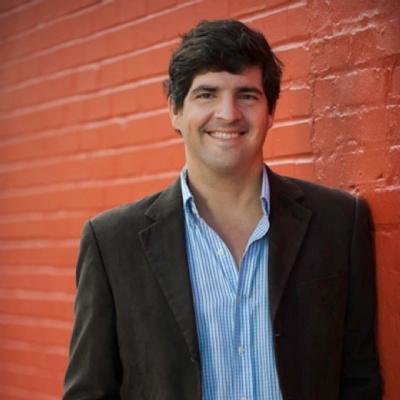The state of the natural world is directly linked to our well-being as human beings says UWC-USA alum

Aurelio describes himself as someone who has always been fascinated by the natural world, but it wasn’t until he attended UWC-USA that his mind was opened towards the close link between nature and human well-being. It was experiences like the wilderness expeditions, the economic and biology classes and the discussions in the corridors with friends and teachers that motivated him to carve out a career in environmental sustainability.
Aurelio reflects that his UWC experience taught him that, “we can make a change if we want it enough…may that be at a global or a local level. We can make a positive difference.”
After leaving UWC-USA, his studies focused on environmental economics, searching for ways to reveal the value of nature and sustainability. Aurelio’s first job was at the Alexander von Humboldt Biological Research Institute in Colombia. He then joined the Latin American Development Bank CAF. Later on he joined The Nature Conservancy, running conservation projects in Colombia, Venezuela, Ecuador and northern Peru. With his background in economics, Aurelio worked with his team to generate economic incentives to private and communal landowners to increase biodiversity protection, despite infrastructure expansion. He was particularly proud of the Bio-Trade programme he pioneered in the Andean region, which proved to be a great success. This programme went on to be introduced to other parts of the world after first being piloted in Colombia.
Aurelio is now Senior Vice President for International Alliances at the National Audubon Society, a non-profit environmental organisation dedicated to incorporating the conservation of birds into national and local development agendas. Aurelio’s work involves engagement with a range of partners - NGOs, business interests, policymakers and community leaders, so that results can be delivered at scale and pace. The Society’s international plan focuses particularly on the most important habitats that migratory, endemic and threatened birds across the Americas need to survive and thrive. Aurelio is quick to add,
“Although our strategies emphasise bird conservation, the goals and strategies include broader conservation goals, as well as economic and human well-being benefits.”
It’s the palpable impact that his work has on nature and people that continues to drive Aurelio forward in his career. And he hopes that future generations of environmentalists will have the capacity to “think big, global and local, so that we can have the kind of transformational changes that nature and humanity urgently need.”
